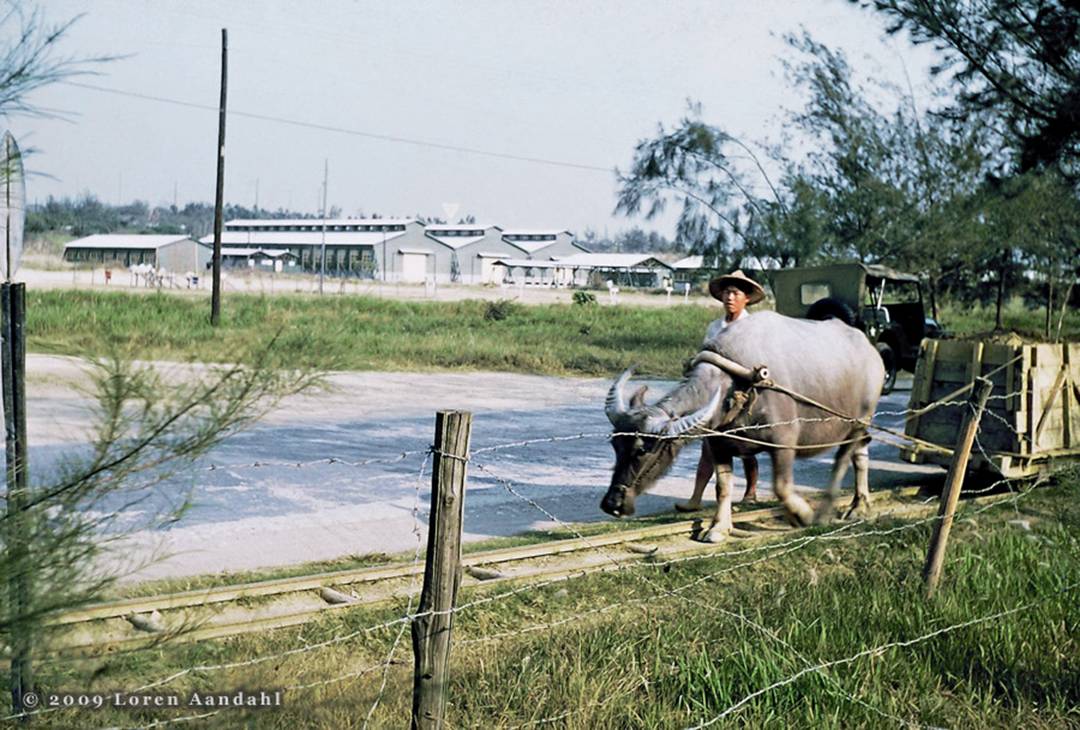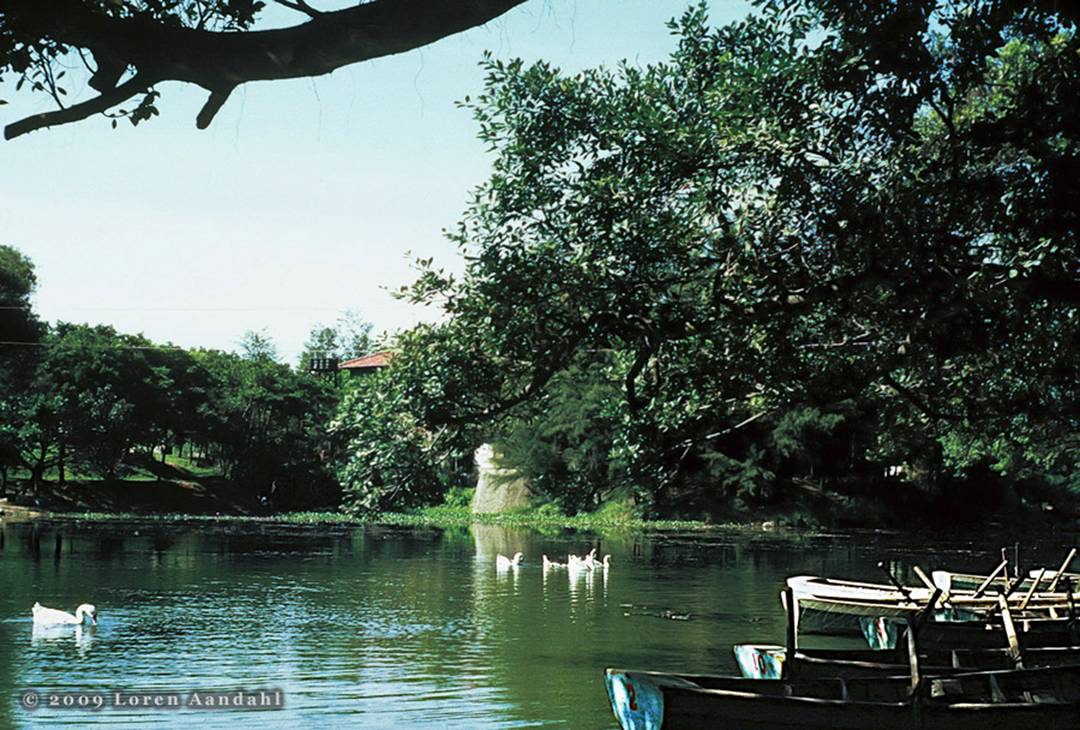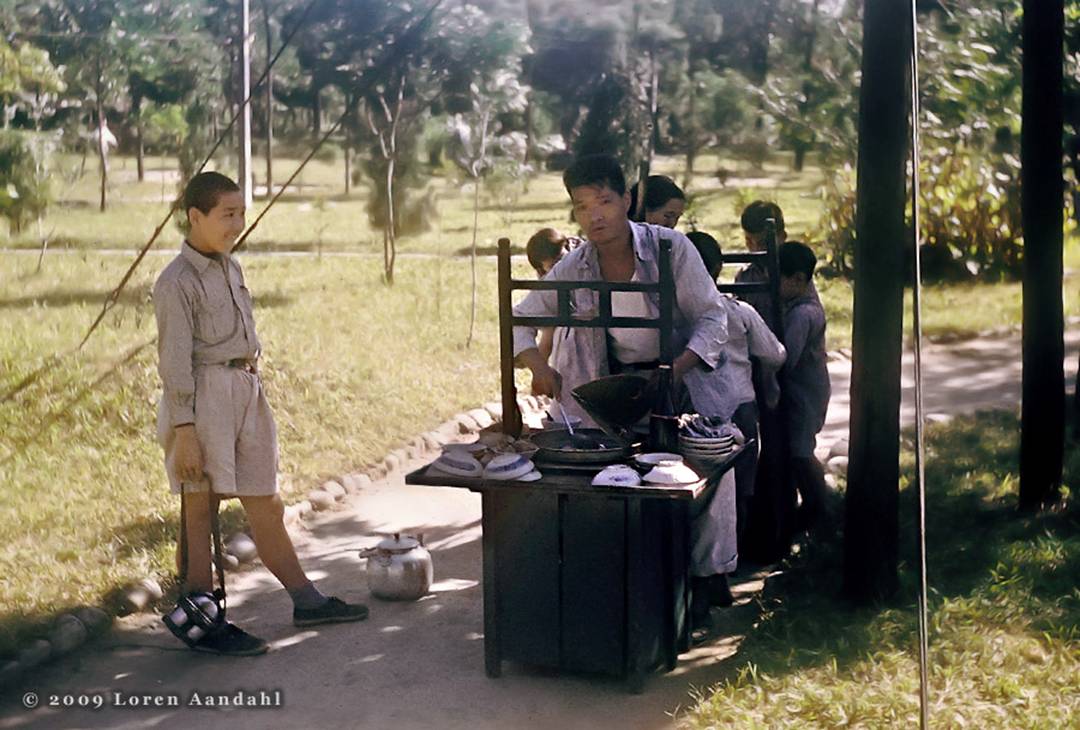|
TAIPEI AIR STATION |

|
A scene from 1954 shows a push cart railway along Kwang Fu Lu heading up the road away from Hsinchu in the direction of Chutung. During the Japanese colonial era, many light construction push cart railways were constructed to serve outlying rural areas prior to the construction of roads. Generally one man would be sufficient to push a loaded cart along the tracks. In addition to being used for freight carriage, the push cart railways were also a popular means of conveying passengers, generally two to a cart. Photograph taken by Elliot Aandah |

|
On a road parallel to Kwang Fu Lu and immediately to the south, another push car railway ran from a clay pit to a brick kiln on the eastern edge of Hsinchu. Here, the carts were pulled by oxen. In the background on the road is one of thousands of the ubiquitous Army jeeps that one seemed to spot everywhere in Taiwan. Photograph taken in 1954. |

|
Just to the south of the traffic circle intersection of Kwang Fu Lu and Kung Yuan Lu, to the east of the Hsinchu railway station, was a small group of hills that contained a lake. This lake was a favorite spot for Hsinchu residents to relax on hot summer days while rowing a boat amongst the lilly pads and the white swans. In the background of this photograph, taken in 1956, is the corner of a large multi-story wooden Japanese style building. It was used as a military residence |

|
A young student boy waits for an after school snack of hot noodles to be prepared by a street vendor who has set up shop in a park in Hsinchu. This photograph was taken in c.1955. |